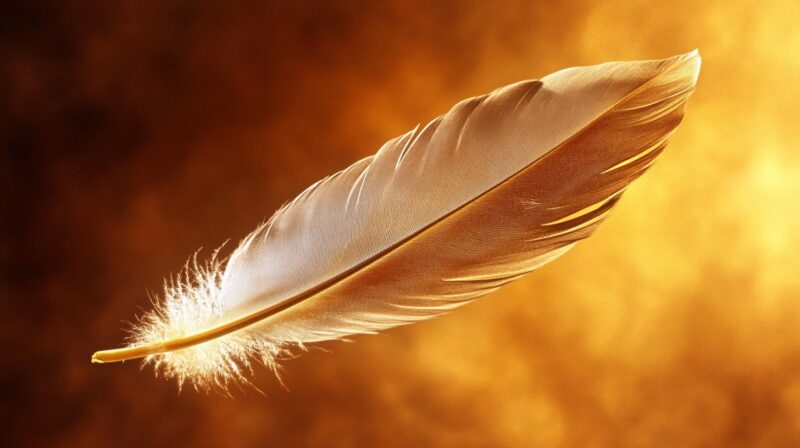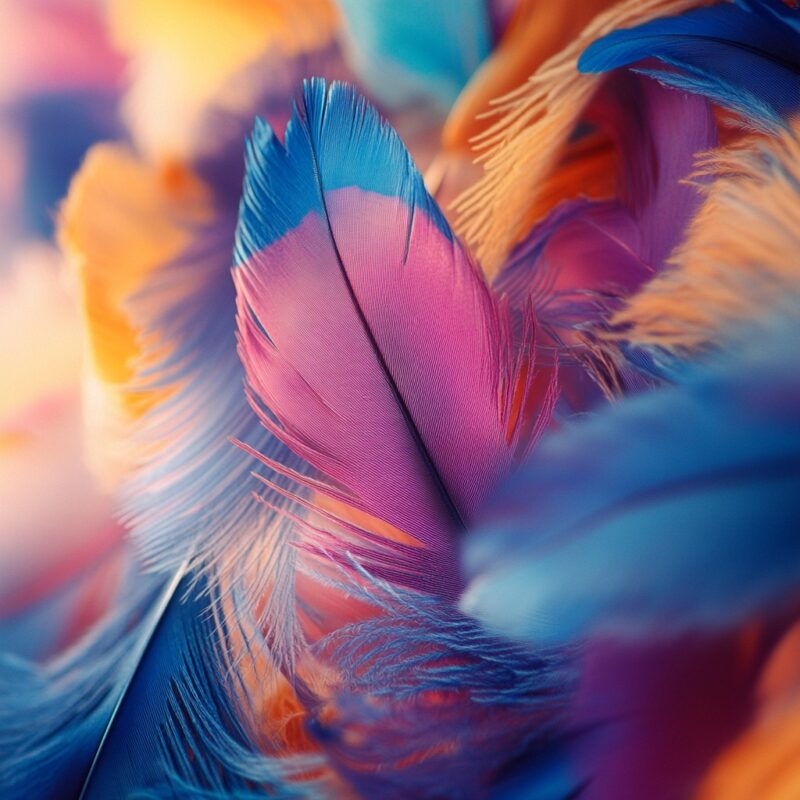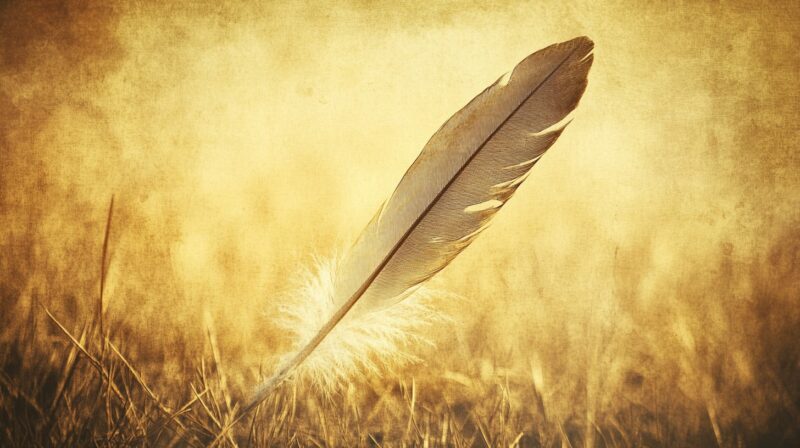Feathers have long been seen as more than just a natural element of birds.
Across different cultures and belief systems, feathers hold deep symbolic meanings that go beyond their physical form.
- Spiritual
- Cultural
- Personal significance
We will explore five powerful meanings behind feather symbolism, shedding light on the profound ways feathers connect us to the divine, represent bravery, and symbolize freedom.
1. Honor, Strength, and Bravery in Native American Cultures

Feathers held a place of sacred importance in many Native American tribes. Warriors who demonstrated acts of courage and strength in battle were often awarded feathers, particularly those from eagles.
The eagle, a revered bird in Native American cultures, was believed to fly the closest to the Creator, symbolizing a strong connection to the divine.
When warriors were given an eagle feather, it marked them with honor and respect, often seen as a badge of bravery.
- Spiritual Strength: Feathers are believed to represent a divine connection, showing the strength of character, mind, and spirit.
- Courage and Valor: Warriors awarded with feathers were seen as embodying courage in the face of adversity.
- Ritual Significance: If an eagle feather was dropped, special ceremonies were required to retrieve it, reflecting the high respect given to the feather and its spiritual meaning.
Feathers in Native American culture also symbolized unity, as they were worn in headdresses during ceremonies to promote peace, understanding, and spiritual alignment within the community.
2. Symbols of Protection and Divine Care
In many spiritual and religious traditions, feathers symbolize divine protection, often associated with angels and higher spiritual beings.
The belief is especially prevalent in Christianity, where feathers are mentioned in scripture as a sign of divine care and protection.
For example, Psalms 91:4 states:
“He will cover you with his feathers,
and under his wings you will find refuge;
his faithfulness will be your shield and rampart.”
It emphasizes the comforting presence of feathers as a symbol of safety.
- Angelic Presence: Feathers are believed to be signs from angels, conveying messages of protection and reassurance.
- Divine Shelter: Feathers represent the shelter and care that come from higher powers, shielding individuals from harm.
- Spiritual Guidance: Finding feathers is often seen as a sign that a guardian angel is watching over and guiding you through difficult times.
This symbolism is also reflected in other cultures, where feathers are used in rituals and ceremonies to invoke divine protection and ensure spiritual well-being.
3. Spiritual Connection and Communication with the Divine

Feathers are often viewed as messengers from the divine or higher spiritual realms.
This symbolism is rooted in the belief that feathers come from birds, which are seen as creatures that can transcend the physical world due to their ability to fly.
Feathers are seen as spiritual tools, offering a link between the earthly and celestial planes.
- Guardian Angels: Feathers are commonly viewed as symbols of protection and guidance, believed to be sent by angels as a sign of their presence.
- Communication with Higher Powers: In various cultures, finding a feather is seen as a message from the spiritual world, often encouraging reflection or signaling divine intervention.
- Symbol of Transcendence: Feathers symbolize the ability to rise above challenges, offering wisdom and spiritual elevation.
Different colors and types of feathers may hold additional meanings, with white feathers often representing purity and peace, and black feathers symbolizing protection or transformation.
4. Freedom and Transcendence of the Mind and Spirit
Feathers have long been associated with the concept of freedom, both physically and spiritually.
Birds’ ability to soar into the sky without restriction is often seen as a metaphor for rising above earthly limitations, and feathers symbolize this boundless freedom.
In many ancient cultures, including Native American, Egyptian, and Christian beliefs, feathers carried symbolic meanings of transcendence, offering individuals a broader perspective on life.
- Breaking Mental Barriers: Feathers are seen as symbols of intellectual and spiritual liberation, representing the ability to rise above life’s limitations.
- Wisdom and Enlightenment: The feather represents the pursuit of higher knowledge and spiritual wisdom, allowing individuals to see life from a different vantage point.
- Release from Earthly Burdens: The lightness of feathers symbolizes freedom from the constraints of physical and mental burdens, promoting a sense of spiritual ascension.
In Egyptian mythology, feathers were linked to the goddess Ma’at, who represented truth, balance, and justice, further reinforcing the association between feathers and the transcendence of the human condition.
5. Cultural Representations of Luck, Power, and Purity

Feathers have been used as symbols of luck, power, and purity in various cultures throughout history. Different bird species and feather colors carry specific meanings, adding layers of cultural interpretation.
For example, in Chinese culture, feathers are seen as tokens of good luck and prosperity, while in Ancient Egypt, feathers were deeply tied to concepts of truth and justice.
In Ancient Egypt, ostrich feathers were associated with Ma’at, the goddess of truth and order.
During the judgment of the dead, a feather from Ma’at’s headdress was used to weigh the heart of the deceased against the feather’s truth. If the heart was lighter than the feather, the soul could move on to the afterlife, symbolizing purity and moral integrity.
- Luck and Prosperity: In Chinese culture, feathers are believed to attract good fortune and abundance.
- Power and Authority: Many cultures associate feathers with power, especially when worn by leaders or warriors.
- Purity and Truth: Feathers, especially white ones, are often symbols of innocence, honesty, and moral righteousness.
Also Read: Find out some interesting facts about Chickasaw Tribe, and expand your knowledge and understanding of their culture.
The Bottom Line
Feathers are not just natural objects, they are powerful symbols that resonate with spiritual, cultural, and personal meanings.
Each meaning adds a unique layer of symbolism, enriching our understanding of the world and our place within it.

